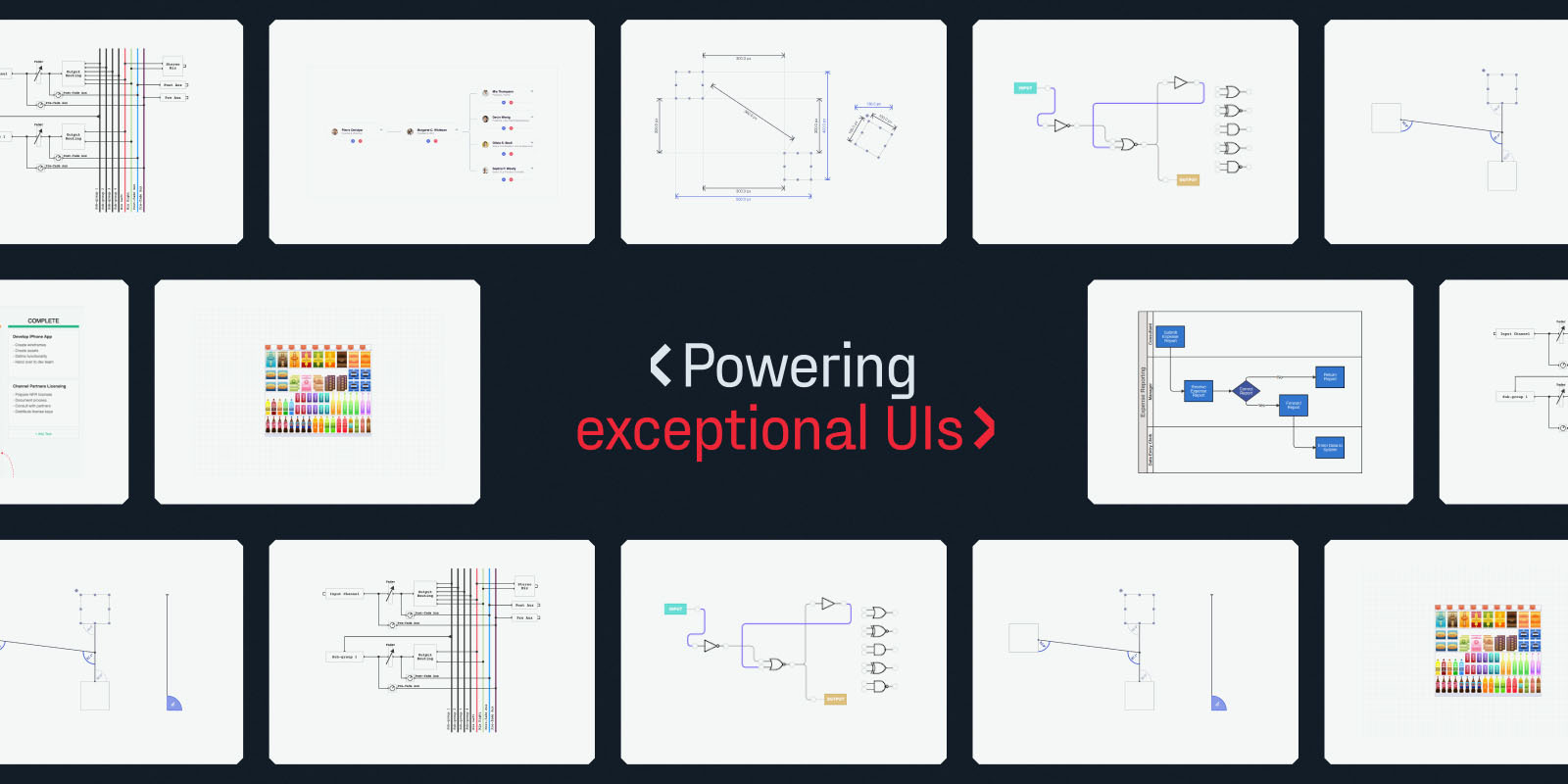Gathering detailed insights and metrics for jointjs
Gathering detailed insights and metrics for jointjs
Gathering detailed insights and metrics for jointjs
Gathering detailed insights and metrics for jointjs
A proven SVG-based JavaScript diagramming library powering exceptional UIs
npm install jointjsTypescript
Module System
Node Version
NPM Version
91.5
Supply Chain
99
Quality
80.6
Maintenance
100
Vulnerability
80.9
License
JavaScript (95.66%)
TypeScript (2.04%)
HTML (1.54%)
CSS (0.67%)
Shell (0.03%)
SCSS (0.03%)
Vue (0.03%)
Makefile (0.01%)
Total Downloads
4,740,557
Last Day
741
Last Week
18,061
Last Month
76,518
Last Year
1,110,840
MPL-2.0 License
4,963 Stars
1,770 Commits
872 Forks
154 Watchers
7 Branches
93 Contributors
Updated on Jun 12, 2025
Minified
Minified + Gzipped
Latest Version
3.7.7
Package Id
jointjs@3.7.7
Unpacked Size
7.88 MB
Size
1.82 MB
File Count
157
NPM Version
9.8.1
Node Version
18.18.2
Published on
Nov 07, 2023
Cumulative downloads
Total Downloads
Last Day
37.7%
741
Compared to previous day
Last Week
-3.8%
18,061
Compared to previous week
Last Month
-11.3%
76,518
Compared to previous month
Last Year
18.1%
1,110,840
Compared to previous year
62
JointJS is a tested and proven JavaScript/Typescript diagramming library that helps developers and companies of any size build visual and No-Code/Low-Code applications faster and with confidence. It’s a flexible tool from which a wide range of UIs can be created (interactive diagramming applications, drawing tools, data visualizations, UIs for monitoring systems, and many more). It can become the foundational layer of your next application and help you bring your idea to market in days, not months or years.

Further information, examples and documentation can be found at jointjs.com.
:1234: Get started with tutorials.
:bulb: To ask a question, share feedback, or engage in a discussion with other community members, visit our GitHub discussions.
:pen: More examples are available on CodePen.
:book: Check out our mind-map documentation.
If you want to work on JointJS locally, use the following guidelines to get started.
Make sure you have the following dependencies installed on your system:
Clone this git repository:
git clone https://github.com/clientIO/joint.git
Change into the joint directory:
cd joint
Install all NPM dependencies:
npm install
Generate build files from the source code:
grunt install
You are ready now to browse our demos:
cd demo
To run all tests:
grunt test
To run only the server-side tests:
grunt test:server
To run only the client-side tests:
grunt test:client
To check for linting errors in src and types directories:
npm run lint
To auto fix errors, run eslint for src and types directories:
npm run lint:fix
To output a code coverage report in HTML:
grunt test:coverage
To output a code coverage report in lcov format:
grunt test:coverage --reporter="lcov"
The output for all unit tests will be saved in the coverage directory.
The dist directory contains pre-built distribution files. To re-build them, run the following:
grunt dist
The source for the JointJS documentation (plus Geometry and Vectorizer libraries) are included in this repository; see the docs directory. The documentation can be built into stand-alone HTML documents like this:
grunt build:docs
The output of the above command can be found at build/docs.
The JointJS library is licensed under the Mozilla Public License 2.0.
Copyright © 2013-2023 client IO
7.5/10
Summary
Denial of Service (DoS) via the unsetByPath function in jsjoints
Affected Versions
< 3.3.0
Patched Versions
3.3.0
0/10
Summary
Prototype pollution in JointJS
Affected Versions
< 3.3.0
Patched Versions
3.3.0
5.6/10
Summary
Prototype Pollution in jointjs
Affected Versions
< 3.4.2
Patched Versions
3.4.2
Reason
security policy file detected
Details
Reason
no dangerous workflow patterns detected
Reason
27 commit(s) and 0 issue activity found in the last 90 days -- score normalized to 10
Reason
all changesets reviewed
Reason
no binaries found in the repo
Reason
license file detected
Details
Reason
SAST tool is run on all commits
Details
Reason
detected GitHub workflow tokens with excessive permissions
Details
Reason
no effort to earn an OpenSSF best practices badge detected
Reason
dependency not pinned by hash detected -- score normalized to 0
Details
Reason
project is not fuzzed
Details
Reason
50 existing vulnerabilities detected
Details
Score
Last Scanned on 2025-06-09
The Open Source Security Foundation is a cross-industry collaboration to improve the security of open source software (OSS). The Scorecard provides security health metrics for open source projects.
Learn More